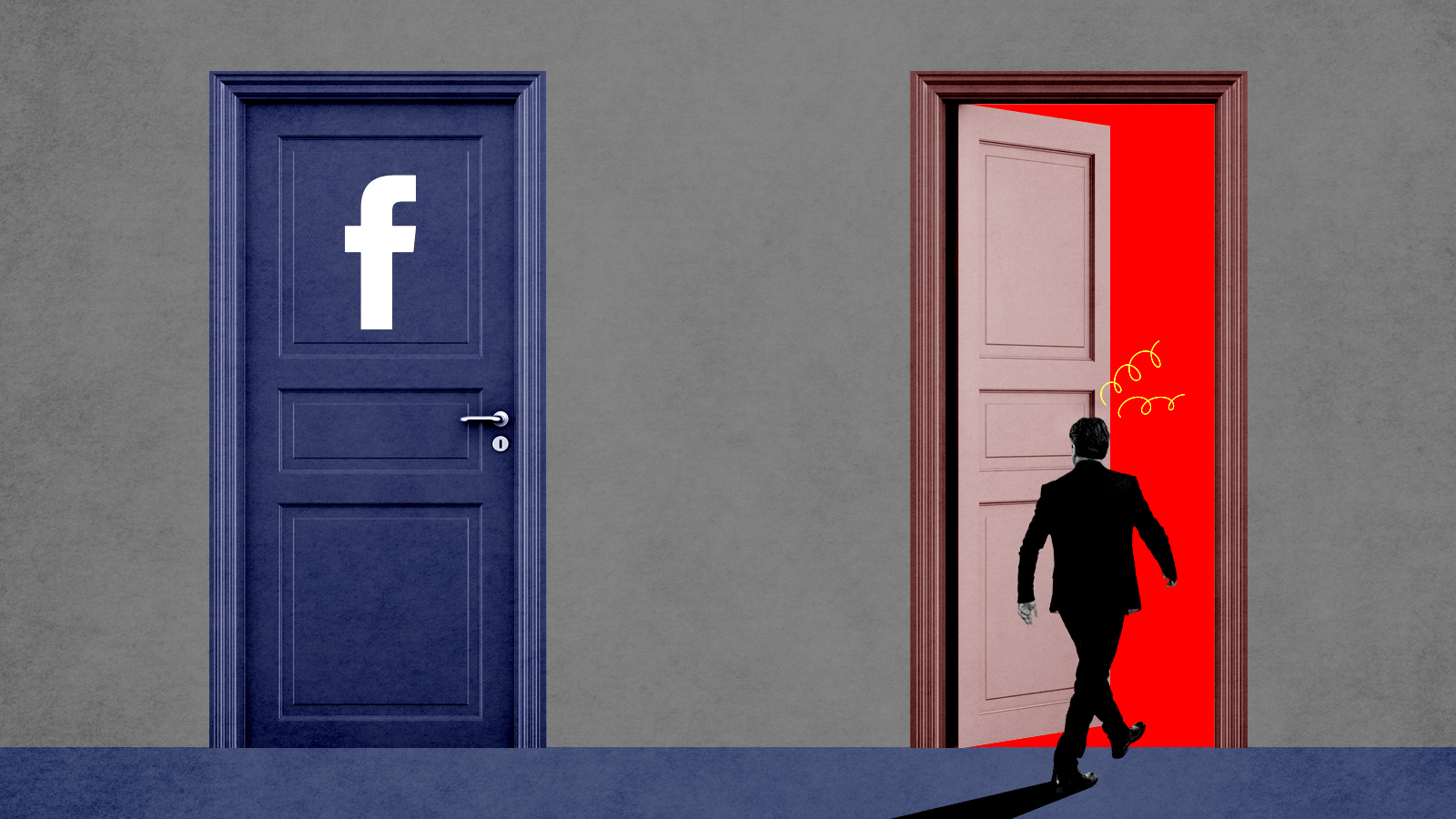Facebook will make it easier for politicians to hide their wildest beliefs


A free daily email with the biggest news stories of the day – and the best features from TheWeek.com
You are now subscribed
Your newsletter sign-up was successful
Facebook will tweak its content moderation policies, the social network announced Friday, ending some special leeway for politicians. Previously, elected officials were granted a newsworthiness exception for content that would be removed — or even result in account suspension — if shared by ordinary users. That exception will be granted far more rarely and transparently going forward.
I'm not convinced deleting politicians' posts is a good idea. It's not that it's all newsworthy: Five years of former President Donald Trump's tweets disabused me of the old journalistic assumption of inherent official newsworthiness. Nor do I think Facebook should be forced to host this stuff. But I do see in Facebook a useful temptation to politicians who believe false, unethical, and otherwise objectionable things: a place to announce to the voting public views they might otherwise manage to conceal. Shouldn't we want to know if people seeking or holding positions of power believe false or unethical things? Isn't that crucial information about how they'll wield their power?
Deplatforming these politicians — ousting them from social networks — is attractive in its moral simplicity, and certainly it did a lot to quiet Trump (whom the Facebook announcement said will be given a conditional return to the platform after a two-year suspension). Yet it can have all sorts of unwanted consequences, including leaving voters ignorant of the wild ideas officials entertain; making those ideas more attractive to some people by virtue of their being "forbidden;" and driving some of those people to fringier platforms where, without pushback from users who disagree with them, their thinking becomes even more misguided.
The Week
Escape your echo chamber. Get the facts behind the news, plus analysis from multiple perspectives.

Sign up for The Week's Free Newsletters
From our morning news briefing to a weekly Good News Newsletter, get the best of The Week delivered directly to your inbox.
From our morning news briefing to a weekly Good News Newsletter, get the best of The Week delivered directly to your inbox.
A more productive approach might be something like what tech journalist Charlie Warzel discussed in his email newsletter in April: adding "friction" to curtail the spread of content, like a limited post rate (say, three posts per week) or a multi-day delay between post submission and publication. Misinformation benefits from unfettered volume and speed, Warzel notes, as "bad actors ... publish quickly and gain a huge advantage over authoritative news outlets that take time to vet information before sharing it." Friction would cut into that advantage without concealing politicians' true views from the public.
The greatest service Facebook could do this country is to pull its own plug. Failing that, introducing friction — and ideally for everyone, not only politicians — would be prudent.
A free daily email with the biggest news stories of the day – and the best features from TheWeek.com
Bonnie Kristian was a deputy editor and acting editor-in-chief of TheWeek.com. She is a columnist at Christianity Today and author of Untrustworthy: The Knowledge Crisis Breaking Our Brains, Polluting Our Politics, and Corrupting Christian Community (forthcoming 2022) and A Flexible Faith: Rethinking What It Means to Follow Jesus Today (2018). Her writing has also appeared at Time Magazine, CNN, USA Today, Newsweek, the Los Angeles Times, and The American Conservative, among other outlets.
-
 Political cartoons for February 17
Political cartoons for February 17Cartoons Tuesday’s political cartoons include a refreshing spritz of Pam, winter events, and more
-
 Alexei Navalny and Russia’s history of poisonings
Alexei Navalny and Russia’s history of poisoningsThe Explainer ‘Precise’ and ‘deniable’, the Kremlin’s use of poison to silence critics has become a ’geopolitical signature flourish’
-
 Are Hollywood ‘showmances’ losing their shine?
Are Hollywood ‘showmances’ losing their shine?In The Spotlight Teasing real-life romance between movie leads is an old Tinseltown publicity trick but modern audiences may have had enough
-
 Trump’s EPA kills legal basis for federal climate policy
Trump’s EPA kills legal basis for federal climate policySpeed Read The government’s authority to regulate several planet-warming pollutants has been repealed
-
 House votes to end Trump’s Canada tariffs
House votes to end Trump’s Canada tariffsSpeed Read Six Republicans joined with Democrats to repeal the president’s tariffs
-
 Bondi, Democrats clash over Epstein in hearing
Bondi, Democrats clash over Epstein in hearingSpeed Read Attorney General Pam Bondi ignored survivors of convicted sex offender Jeffrey Epstein and demanded that Democrats apologize to Trump
-
 Judge blocks Trump suit for Michigan voter rolls
Judge blocks Trump suit for Michigan voter rollsSpeed Read A Trump-appointed federal judge rejected the administration’s demand for voters’ personal data
-
 US to send 200 troops to Nigeria to train army
US to send 200 troops to Nigeria to train armySpeed Read Trump has accused the West African government of failing to protect Christians from terrorist attacks
-
 Grand jury rejects charging 6 Democrats for ‘orders’ video
Grand jury rejects charging 6 Democrats for ‘orders’ videoSpeed Read The jury refused to indict Democratic lawmakers for a video in which they urged military members to resist illegal orders
-
 Big-time money squabbles: the conflict over California’s proposed billionaire tax
Big-time money squabbles: the conflict over California’s proposed billionaire taxTalking Points Californians worth more than $1.1 billion would pay a one-time 5% tax
-
 Trump links funding to name on Penn Station
Trump links funding to name on Penn StationSpeed Read Trump “can restart the funding with a snap of his fingers,” a Schumer insider said
